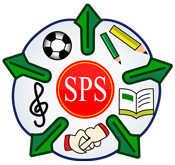Science – Materials & their properties
Intent, Implementation and Impact –
Subject Key Objective Progression & Development by Year Groups
The following is a guide to help you understand your child’s progression through school.
All lessons are differentiated. This means teachers plan activities that enable the objective to be learned by all children including those who will find the objective challenging, those children who with hard work will secure good progress and those children who can tackle extra stretch and challenge in this subject.
Intent, Implementation and Impact
The curriculum is designed with our pupils and the Swinemoor community in mind.
It enables children to access and enhance their understanding of their home, their town and the wider community, developing their cultural capital and giving them opportunities and choices about their future and their impact as they progress through their school career and beyond.
This will help them become successful members of modern British society, preparing them for the challenges and opportunities.
SCIENCE – Materials & their properties
EYFS: “Children know about similarities and differences in relation to objects and materials.”
KS1: “Children can compare and group together a variety of everyday materials on the basis of their simple physical properties.”
KS2: “Children can compare and group materials together, according to whether they are solids, liquids or gases.”
EYFS:
Materials (T1)
Rough (T1)
Waterproof (T1)
KS1:
Opaque (T2)
Translucent (T2)
Transparent (T2)
KS2:
Soluble (T3)
Filter (T3)
Dissolve (T3)
Children will gain an understanding of physics. Pupils may demonstrate knowledge of a variety of materials and their properties.
They will have a knowledge of materials and their states of matter and how this impacts on everyday life.
They will understand the utility and broad application of science qualifications, knowledge and skills used in science. That these can lead to a wide range of jobs beyond, not just in, science fields.
What will be made, produced, performed, or published?
Children will produce a piece of portfolio work, demonstrating their knowledge and understanding.
They will participate in a sequence of lessons with a scientific focus, producing a range of evidence including written work.
What knowledge will the children have embedded?
Children will be able to recall specific scientific facts about materials and their properties, at a level appropriate to age.
They will demonstrate an understanding of objects and materials they are made from, including the uses and properties.
What retention may be demonstrated?
Here are some example questions that may be used to assess children’s understanding.
EYFS: What is the difference between a material and an object? Name 3 objects and the materials they are made from.
KS1: Why would we use glass to make a window? Why would we use bricks to build a house?
KS2: Can you name a solid, a liquid and a gas? How process would be used to turn a solid into a liquid?
Science – Materials – Primary Curriculum
Physics – Foundation stage:
Explore and investigate some objects and know what materials they are made form.
Physics – Year 1:
Explore and investigate some objects and know what materials are made from and describe their properties.
Physics – Year 2:
Name an increasing number of materials and their properties and to discuss their uses.
Physics – Year 3:
Know uses of materials and begin to compare them.
Physics – Year 4:
Know uses and properties of materials, to compare them and know whether they are solid, liquid or gas.
Physics – Year 5:
Recognise solid, liquids and gases and begin to investigate some how some solids will dissolve in liquid.
Physics – Year 6:
Recognise solids, liquids and gases and begin to investigate that some solids will dissolve into a liquid and that some mixtures can be reversed.
Physics – Mastery:
Recognise some solids will dissolve in a liquid, that some mixtures can be reversed and separated and know how to reverse the process by a range of methods.
This collection of short films and resources will help you understand your child’s progression through school.
The curriculum film resource has been broken down by subject area initially and then by topic area.


